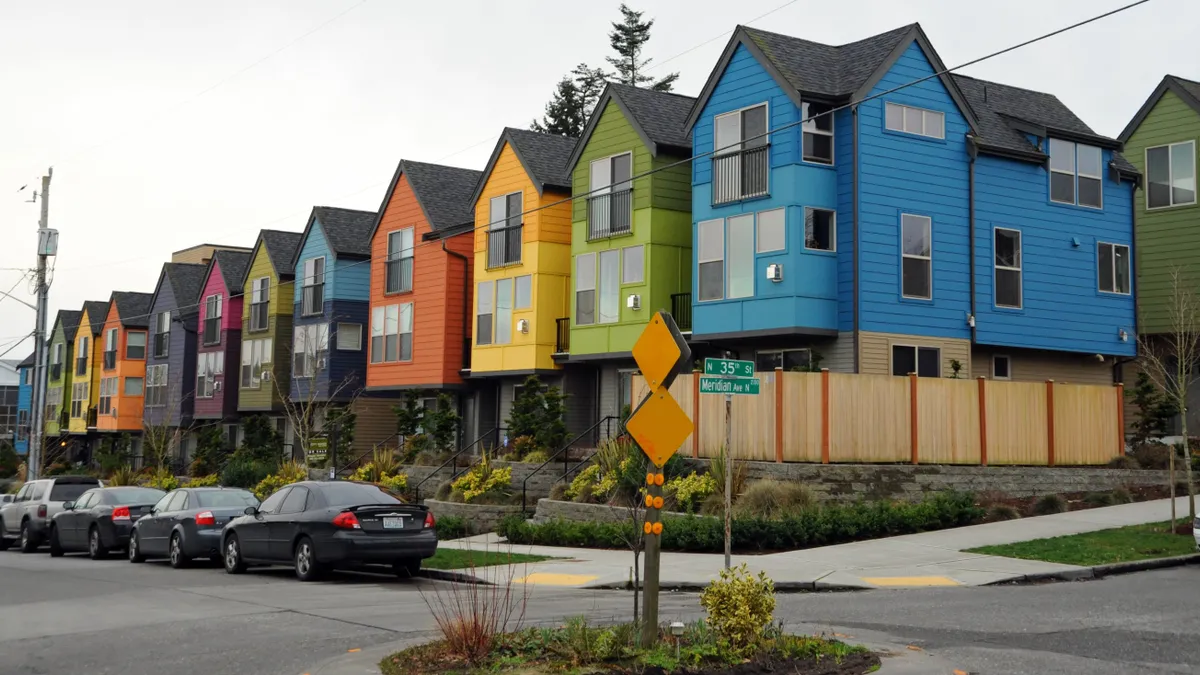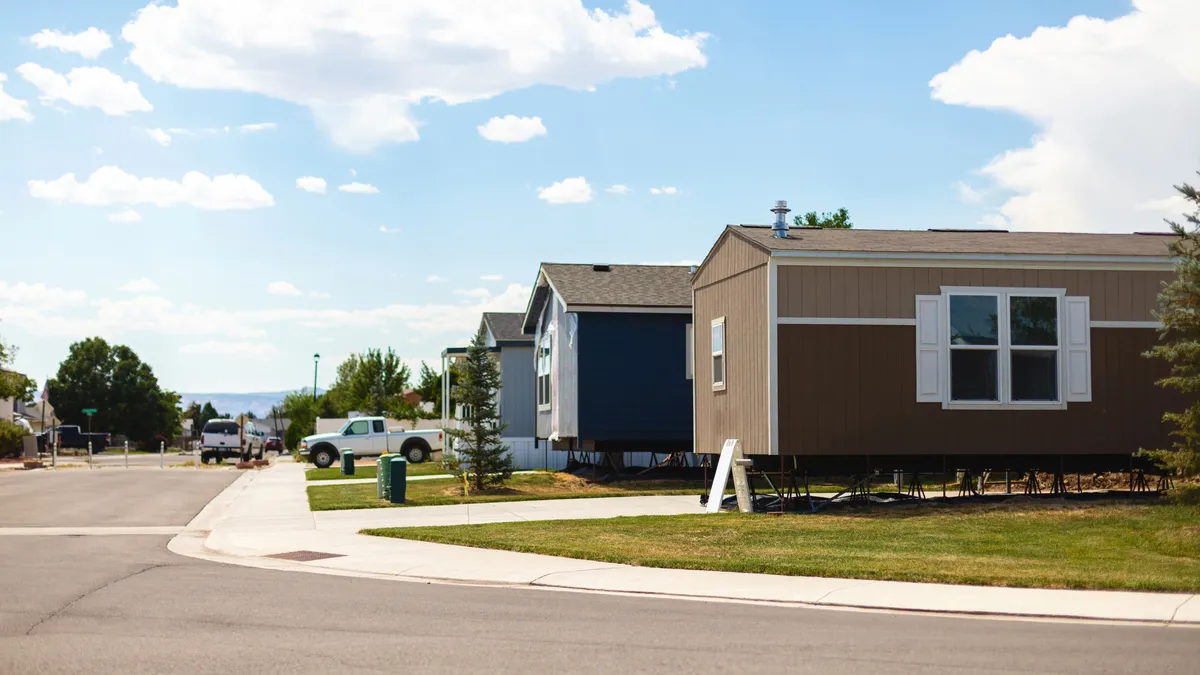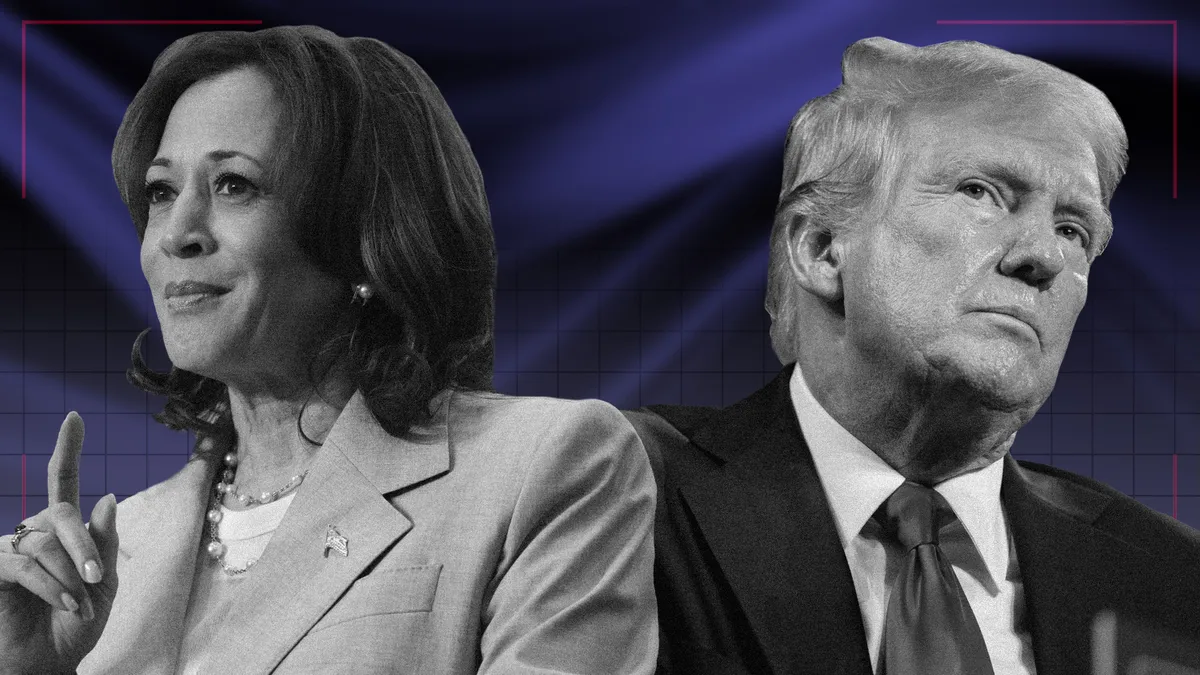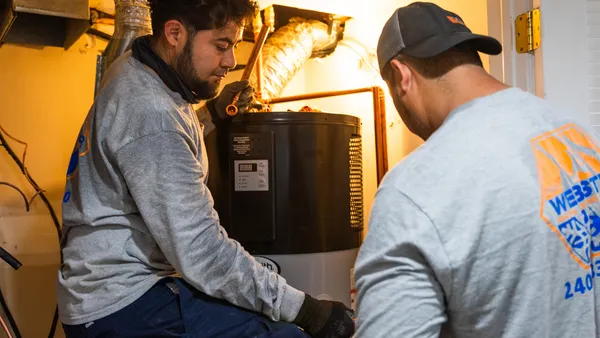Dive Brief:
- Two Seattle councilmembers have proposed a business tax that could generate up to $24 million a year to fund the H.O.M.E.S (Housing, Outreach, and Mass-Entry Shelter) program, developed to alleviate the city's homelessness crisis, according to GeekWire and others.
- The tax would be imposed upon the city's highest-grossing businesses, which are those with at least $5 million in annual gross receipts. That applies to about 10% — or 2,200 — of the city's businesses.
- The measure would go into effect in early 2018 and would cost each business about $100 each year per full-time employee. Lawmakers will begin discussing the business tax proposal this week.
Dive Insight:
Although the U.S. Department of Housing and Urban Development (HUD) notes a 15% decline in homelessness in America over the past decade, Seattle is one of the areas trending in the opposite direction. It has experienced a 19% increase in homelessness since 2010 and has the third largest homeless population in the country behind New York and Los Angeles, according to HUD. In fact, the steady increase prompted Seattle's mayor and county executive to both declare states of emergency for homelessness in 2015. Seattle also has a major problem with housing affordability, which some blame on Amazon and other large companies that fueled the city's economic boom.
Seattle is one of the growing number of cities looking to tackle the homelessness problem with new approaches instead of solely relying on a one-size-fits-all traditional shelter program. Many cities are choosing to take a more holistic approach by addressing underlying problems that lead to long-term homelessness, such as joblessness or inadequate mental health care. But cities across the country lack sufficient funding for programs to curb homelessness. Seattle's proposal to use a business tax to fund its program is a different approach, and it comes just after the interim mayor's proposal to increase spending on responses to homelessness by almost 40% compared with four years ago.
The money collected through the business tax would be used in a variety of manners to combat homelessness, including emergency shelters, rental vouchers, safe lots for homeless vehicle campers and tiny house villages. Although the program would better focus attention on traditionally underserved portions of the community, it also could worsen the bad blood between the business community and the city government. Some local politicians want businesses to take responsibility for displacing low-income residents, rapidly driving up the cost of living and causing housing prices to skyrocket. That attitude is souring businesses' view of the city's policymakers, and some claim it's pushing out the very players that stimulated Seattle's economy, as evidenced by Amazon's desire to build its HQ2 in a different city. Both mayoral candidates for the Nov. 7 election have hinted that they support the tax proposal, whereas the business community has been outspoken against it.











